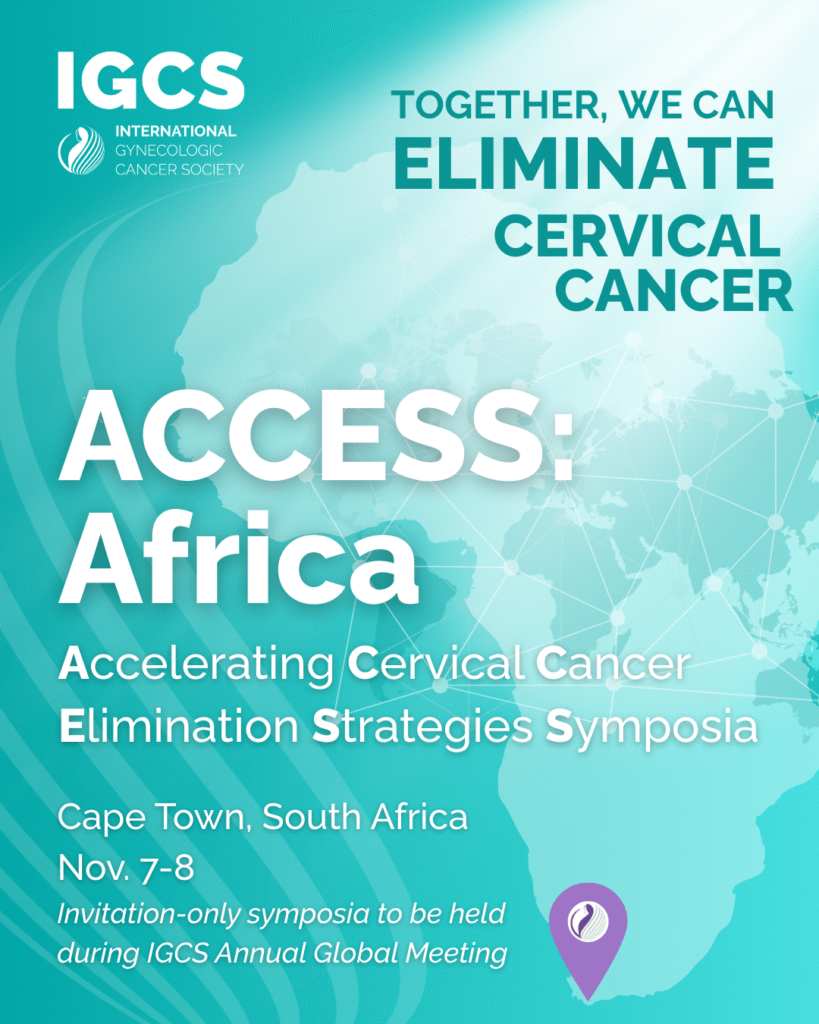
Accelerating the Elimination of Cervical Cancer IGCS' Bold Plan for the Next Five Years
With just five years remaining to achieve the 2030 targets outlined in the WHO Global Strategy to Eliminate Cervical Cancer, urgent action is needed worldwide.
To support this vision, IGCS is launching two major initiatives:
- The IGCS ACCESS Series (Acceleration of Cervical Cancer Elimination Strategies Symposia)—a five-year initiative designed to transform global commitments into measurable impact.
- An online resource hub and navigational tool to centralize knowledge and guidance.

The Project Team
The ACCESS Series is led by Mary Eiken, IGCS CEO, and facilitated by Julie Torode, PhD, IGCS consultant, with guidance from an Advisory Group that includes members of the IGCS Board, global experts, and African champions chairing the three consultation pillars.
With extensive experience in global cancer policy, Dr. Torode emphasizes the importance of coordinated national action: “National activities are too often fragmented and lack political attention. Advancing cervical cancer elimination plans is critical for policy coherence and the equitable delivery of high-quality services across all three pillars. IGCS members can be that uniting voice—bringing expertise and energy to elevate cervical cancer prevention and control as a public health priority. The ACCESS Series will bring global attention to local realities, helping to close the gap between aspiration and action.”
Annual landscaping and analysis will be conducted by a team from the University of Sydney, led by Prof. Karen Canfell and including Dr. Deborah Bateson, Dr. Michael Caruana, Dr. Telma Costa, Dr. Diep Nguyen, Dr. Ai Ling Tan, and Dr. Kate Simms.
Strategic guidance for the ACCESS Series will be provided through three pillar-focused consultation groups:
Pillar 1: HPV Vaccination and Public Awareness
Led by Dr. Suzanne Garland
African Leads 2025 Dr. Nelly Mugo Dr. Deborah Watson-Jones
Pillar 2: Screening and Treatment of Precancerous Lesions
Led by Dr. Karen Canfell
African Leads 2025 Dr. Laura Muzingwani Dr. Rakiya Saidu
Pillar 3: Treatment and Palliative Care of Invasive Cancers
Led by Dr. Kathleen Schmeler
African Leads 2025 Dr. Surbhi Grover Dr. Anisa Mburu Dr. Eve NamisangoStrategic Alignment
These efforts align directly with IGCS’s three Strategic Pillars:
- Enhancing the member experience through shared knowledge and resources.
- Advancing equitable, patient-centered care by supporting implementation in high-burden regions.
- Expanding global impact by accelerating progress toward the elimination of the first cancer ever targeted for worldwide eradication.

 login/create account
login/create account Donate
Donate


